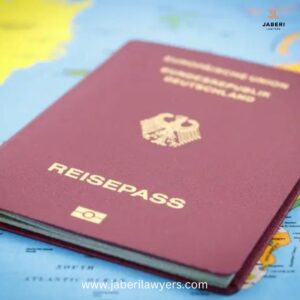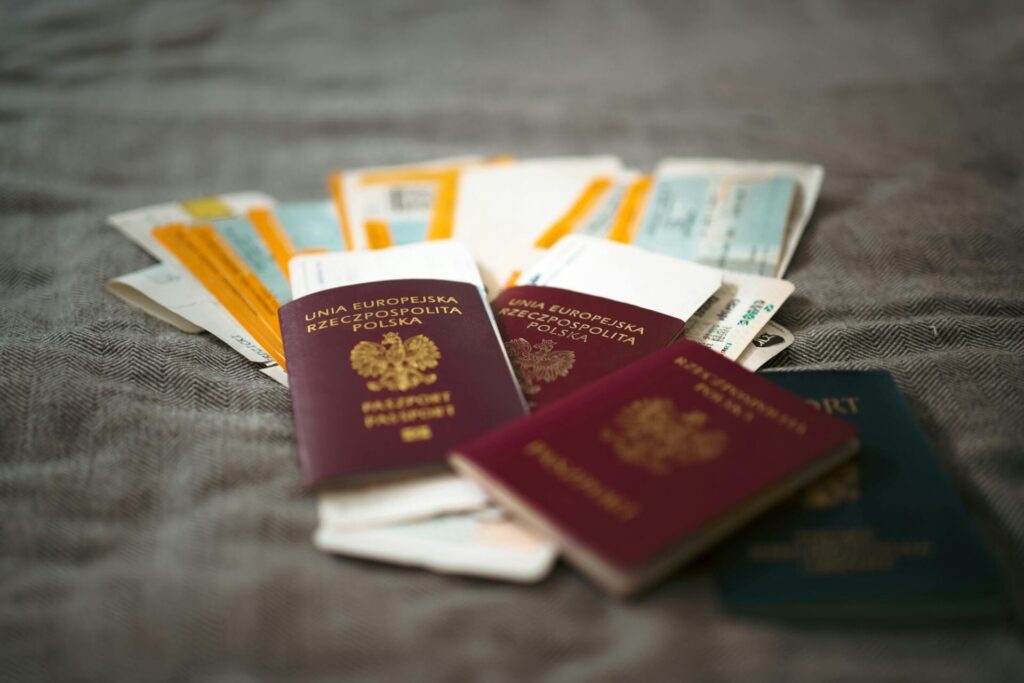If you’re considering moving to Germany for your education or vocational training, you’re already on a promising path. With its renowned universities, world-class dual training system, affordable living costs, and clear residence pathways, Germany continues to be a top destination for students and trainees from all around the world.
But before packing your bags, it’s crucial to understand the step-by-step legal process, eligibility requirements, financial preparations, and long-term planning. Whether you’re a high school graduate looking for vocational opportunities or a university hopeful with global ambitions, this guide—tailored for newcomers in 2025—will explain everything you need to succeed.
1. Studying in Germany – What Every International Student Should Know
Why Germany?
Germany offers a unique combination that attracts students worldwide:
-
World-class education at low or no tuition cost
-
English-taught programs, especially at the postgraduate level
-
Strong job market for graduates
-
Legal pathways to long-term residence
-
Safe and structured environment for newcomers
-
A multicultural atmosphere where international students thrive
Student Visa Process – Step by Step (2025 Updated)
If you are a non-EU citizen, you will need a national visa (type D) to enter Germany legally for study purposes. Here’s what you must do:
Step 1: Get Admitted to a German University
-
Apply to German universities or Studienkolleg (preparatory course)
-
Choose a course in English or German
-
Receive an official admission letter
Step 2: Prepare Your Visa Application Documents
Here’s what you will need to present at the German embassy or consulate:
-
University Admission Letter
This confirms that you’ve been accepted into a recognized institution or course. -
Proof of Financial Resources (Finanzierungsnachweis)
You must prove you can support yourself during your studies. The most common way:-
Blocked Account (Sperrkonto) with at least €11,208 per year (approx. €934 per month). This amount may vary slightly based on inflation and federal updates.
-
OR a formal obligation letter (Verpflichtungserklärung) from a sponsor living in Germany.
-
-
Valid Passport
Ensure it is valid for your entire intended stay in Germany. -
Health Insurance
You must be insured for your entire stay. You can obtain temporary insurance before arrival and switch to student insurance after enrolment. -
Proof of Language Proficiency
-
German courses: B1/B2 German certificate (Goethe, Telc, TestDaF, etc.)
-
English courses: IELTS (6.0+), TOEFL (80+), or equivalent
-
-
Academic Certificates
Include your high school diploma, transcripts, and degree certificates (translated into German or English and notarized, if required). -
Motivation Letter and CV
Clearly explain why you chose the course, the university, and how it aligns with your career goals.
After Arrival – Legal Steps in Germany
Upon arriving in Germany with your student visa, you must take the following steps:
-
Register Your Address (Anmeldung)
Within 14 days of finding housing, go to your local registration office (Einwohnermeldeamt) to declare your address. -
Apply for a Residence Permit for Study (§16b AufenthG)
Visit the local immigration office (Ausländerbehörde) with:-
All your visa documents
-
Proof of university enrolment
-
Updated bank balance or scholarship
-
Health insurance confirmation
-
Once granted, your residence permit allows you to:
-
Work up to 120 full days or 240 half days per year
-
Stay in Germany throughout your study program
-
Extend your permit if needed (due to delays, thesis work, etc.)
Tip: Don’t miss deadlines. If your residence permit expires without renewal, you may face legal issues or even deportation.
2. Vocational Training in Germany (Ausbildung) – A Career-Ready Path
Germany’s dual vocational training system is globally respected and gives international applicants a practical route to the job market.
What Is Ausbildung?
An Ausbildung combines classroom instruction with paid, hands-on training in a real company. It’s ideal for:
-
People who enjoy practical work
-
Those who want to earn while learning
-
Students who may not qualify for university-level education
-
Skilled migrants looking for long-term career paths
There are over 300 recognized professions in sectors like:
-
Nursing & Elderly Care
-
Electrician & Plumbing
-
Hotel & Restaurant Management
-
IT Support & Software Engineering
-
Dental/Medical Assistant
-
Solar Panel Installation
-
Mechatronics & Industrial Technology
Requirements for Ausbildung Visa (§16a AufenthG)
To apply for a vocational training visa, you must present the following:
-
Training Contract (Ausbildungsvertrag)
A signed agreement with a recognized training company outlining salary, duties, and duration. -
German Language Certificate (B1 minimum)
Ausbildung is usually in German, so language skills are essential. Exceptions may exist for English-language programs (very rare). -
Financial Proof
If your salary during the Ausbildung is less than €934/month, you must prove extra funds (via a blocked account or sponsorship). -
Health Insurance
-
Accommodation Proof and Passport
In 2025, Germany has introduced fast-track procedures for Ausbildung in critical sectors like healthcare, solar tech, and skilled crafts. This means easier document processing and embassy priority.
How Much Will I Earn During Ausbildung?
Your training salary (Ausbildungsvergütung) varies by profession and region:
-
Year 1: €800–€1,000/month
-
Year 2: €950–€1,150/month
-
Year 3: €1,050–€1,300/month
This is enough to cover rent, food, and insurance in most small and mid-sized German cities.
️ 3. What Happens After You Graduate?
Germany encourages international students and trainees to stay and work.
For University Graduates:
-
After your degree, you can apply for an 18-month Job-Seeker Visa to find employment in your field.
-
Once employed, you can apply for:
-
EU Blue Card (§18g) – if your salary meets the 2025 threshold (€45,300 or €41,041 for shortage jobs)
-
Permanent Work Visa (§18b) – for general employment with a valid job offer
-
For Ausbildung Graduates:
-
You can immediately apply for a residence permit to work in your trained profession (no job seeker period needed).
-
After 2 years of full-time work, you can apply for a Settlement Permit (permanent residence).
4. Can You Bring Your Family?
Yes, depending on your visa type:
-
University students cannot bring family immediately, unless funded through a scholarship or high finances.
-
Vocational trainees usually cannot bring family during Ausbildung.
-
Work permit holders (after studies/training) can apply for family reunification for spouses and children, especially if earning a regular salary.
️ 5. German Language – Key to Long-Term Success
Even if your program is in English, daily life in Germany runs in German. To integrate, find work, and build a future, we highly recommend:
-
Reaching B1 or B2 level German
-
Enrolling in integration or professional language courses
-
Practicing daily with locals or online apps
Some legal pathways even require German proficiency for residency or citizenship later.
️ How Jaberi Lawyers Can Help You
Immigration for study and vocational training involves complex legal rules and document verification. Many applications fail due to missing or incomplete papers, wrong translations, or misunderstandings.
At Jaberi Lawyers, we:
-
Help prepare your complete visa file
-
Guide you in setting up blocked accounts and insurance
-
Support with embassy appointments and rejections
-
Assist with residence permit extensions and change of purpose (study to work)
-
Represent you legally in case of delays, refusals, or complications
We speak your language, understand your goals, and protect your legal journey from the first step.
Ready to Build Your Future in Germany?
Whether you want to study at a top German university or train in a high-demand profession, your journey should start with expert legal guidance.
Jaberi Lawyers – Hamburg & Frankfurt
+49 (0)40 413 499 87
+49 (0)69 989 727 302
contact@jaberilawyers.com
www.jaberilawyers.com
Jaberi Lawyers – Where Immigration Meets Expertise.







